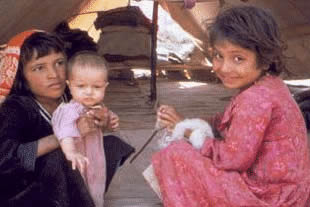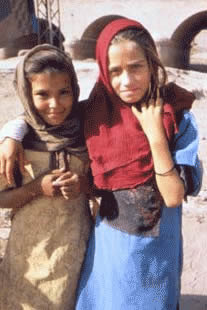

If you would like to buy a copy of this book
click here
|
Home | SchNEWS OF THE WORLD Out Of The Frying PanDeaths caused allegedly by Al Qa'ida on September 11: nearly 3,000. Civilian deaths in Afghanistan because of the US led attacks they call 'Enduring Freedom': up to 28,000. What war on terrorism?Before September 11 there were already over a million Afghanistani refugees fleeing a country ravaged by decades of war, political instability and drought. Immediately after September 11, when it looked like US attacks were imminent, nearly 250,000 Afghanis escaped across closed borders - the UN claiming that about 160,000 went to Pakistan, 60,000 went to Iran, and 10,000 remained in refugee camps within Afghanistan. Much trauma resulted from the upheavel, with only the wealthier ones able to bribe border guards and maintain provisions during the journey. The toll of Afghani civilian deaths is far higher than just those known to have been killed by bombs. The US air strikes since October 7th turned a dire situation into a total catastrophe for the average Afghani. While it is figured that up to 8,000 civilians have been killed by the US bombing - now it is estimated that another 20,000 could have died indirectly because of the war*. The droughts have compounded the hazards of displacement from home with people forced to travel long distances cut off from food and other supplies. They have spent the last winter in tents, at the mercy of aid. With the firm arm (and gun) of the Taliban rule gone, many have been murdered during incidents of looting and local ethnic conflict. And then there's the matter of depleted uranium bombs being used, the long term consequences of which may not yet be known.
When the US started bombing Afghanistan they mouthed empty promises that aid would accompany the attack to make up for the inconvenience of being bombed back to the stone age for the second time in twenty five years. What eventuated was that the international aid already being given to the country pre-September 11 was disrupted - and existing aid deliveries were lowered by 40% during the three month period after the bombing began. The media made out that the 'war on terrorism' had done the people of Afghanistan a big favour by removing the Taliban - who had ruled since 1996. The Taliban's strict Islam fundamentalism - which involved public hangings for those opposing them and other public atrocities (see www.rawa.org for the gory details) make them hardly ideal, but the removal of their heavy control and the ascendency to power of the Northern Alliance introduced rampant lawlessness, reminding people of the last time this alliance were in power before 1996. The US agenda to take out the Taliban involved arming and assisting an 'emerging coalition of oppositional forces' - a well-thought-out strategy which saw the Northern Alliance re-taking control. This alliance featured many of the same war criminals (such as Abdul Rashid Dostum, head of the Junbish militia), who as the Mujehadeen had ruled from 1992-1996. Their legacy was four years of massacres, rape and pillage leaving 50,000 dead in Kabul. Northern Alliance drug lords grow 70-90% of the world's opium, which mostly goes to the Triads in China - a huge racket involving banks and money laundering which the Taliban tried to crack down on. Since October the people most subject to violence and oppression are the majority Pashtuns - who happen to be the same ethnic group as the Taliban. Despite all the maniacal fundamentalism, it is understandable that for many the Taliban would be preferable. A lot of the homeless are in refugee camps because their houses were bombed - but many more are in the camps because their towns are subject to looting and ethnic persecution and they don't want to return. With the US showing no regard whatsoever for the human consequences as they help a load of war criminals back into power, their agenda is obvious: putting Afghanistan on the path towards political stability? - you can eliminate that red herring immediately. Gaining military control of the region at any human cost because of its proximity to large petroleum reserves? You can read Bush like a book.
* These figures are given by Jonathan Steele in The Guardian, May 20, 2002.
|

